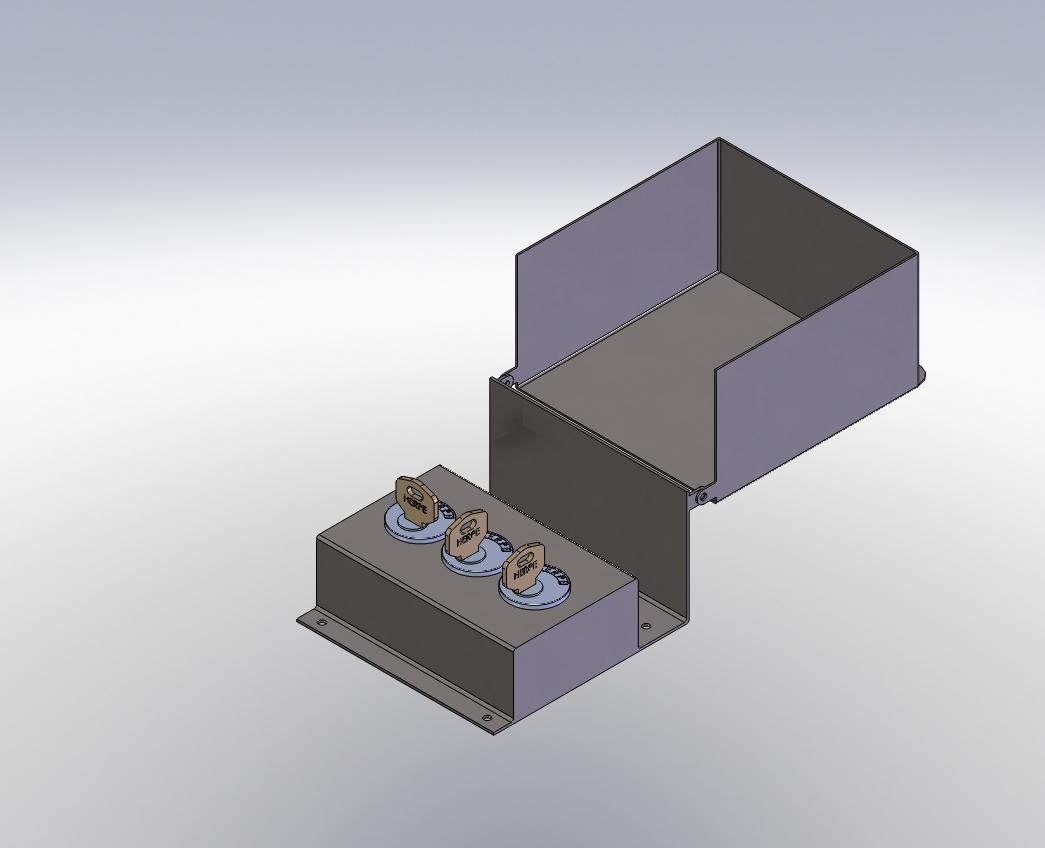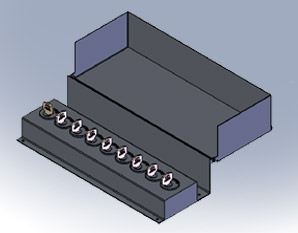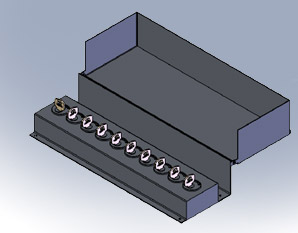Key Selectors with Lid


-
Ref. A403 KEY SELECTOR – THREE KEYS, Ref. A403


In some occasions, the interlocking sequence requires of more than one key to perform it. Key selectors allow to get more than one key from just one, so that the interlocking sequence can be performed without errors.
As an example, in a key selector with two keys, when one of the cabinet locks is released, the other is trapped and cannot be released. If the free key is inserted and turned, the other one can be released and, consequently, the former is trapped.
Características
One key trapping: two keys | Two keys trapping: one key
-
Ref. A404 KEY SELECTOR – FOUR KEYS, Ref. A404


In some occasions, the interlocking sequence requires of more than one key to perform it. Key selectors allow to get more than one key from just one, so that the interlocking sequence can be performed without errors.
As an example, in a key selector with two keys, when one of the cabinet locks is released, the other is trapped and cannot be released. If the free key is inserted and turned, the other one can be released and, consequently, the former is trapped.
Características
One key trapping: three keys | Three keys trapping: one key
-
Ref. A405 KEY SELECTOR – FIVE KEYS, Ref. A405


In some occasions, the interlocking sequence requires of more than one key to perform it. Key selectors allow to get more than one key from just one, so that the interlocking sequence can be performed without errors.
As an example, in a key selector with two keys, when one of the cabinet locks is released, the other is trapped and cannot be released. If the free key is inserted and turned, the other one can be released and, consequently, the former is trapped.
Características
One key trapping: four keys | Four keys trapping: one key
-
Ref. A406 KEY SELECTOR – SIX KEYS, Ref. A406


In some occasions, the interlocking sequence requires of more than one key to perform it. Key selectors allow to get more than one key from just one, so that the interlocking sequence can be performed without errors.
As an example, in a key selector with six keys, when one of the cabinet locks is released, the other is trapped and cannot be released. If the free key is inserted and turned, the other one can be released and, consequently, the former is trapped.
Características
One key trapping: five keys | Five keys trapping: one key
-
Ref. A407 KEY SELECTOR – SEVEN KEYS, Ref. A407


In some occasions, the interlocking sequence requires of more than one key to perform it. Key selectors allow to get more than one key from just one, so that the interlocking sequence can be performed without errors.
As an example, in a key selector with seven keys, when one of the cabinet locks is released, the other is trapped and cannot be released. If the free key is inserted and turned, the other one can be released and, consequently, the former is trapped.
Características
One key trapping: six keys | Six keys trapping: one key
-
Ref. A408 KEY SELECTOR – EIGHT KEYS, Ref. A408


In some occasions, the interlocking sequence requires of more than one key to perform it. Key selectors allow to get more than one key from just one, so that the interlocking sequence can be performed without errors.
As an example, in a key selector with two keys, when one of the cabinet locks is released, the other is trapped and cannot be released. If the free key is inserted and turned, the other one can be released and, consequently, the former is trapped.
Características
One key trapping: seven keys | Seven keys trapping: one key
-
Ref. A409 KEY SELECTOR – NINE KEYS, Ref. A409


In some occasions, the interlocking sequence requires of more than one key to perform it. Key selectors allow to get more than one key from just one, so that the interlocking sequence can be performed without errors.
As an example, in a key selector with two keys, when one of the cabinet locks is released, the other is trapped and cannot be released. If the free key is inserted and turned, the other one can be released and, consequently, the former is trapped.
Características
One key trapping: eight keys | Eight keys trapping: one key
-
Ref. A410 KEY SELECTOR – TEN KEYS, REF. A410


In some occasions, the interlocking sequence requires of more than one key to perform it. Key selectors allow to get more than one key from just one, so that the interlocking sequence can be performed without errors.
As an example, in a key selector with two keys, when one of the cabinet locks is released, the other is trapped and cannot be released. If the free key is inserted and turned, the other one can be released and, consequently, the former is trapped.
Características
One key trapping: nine keys | Nine keys trapping: one key

